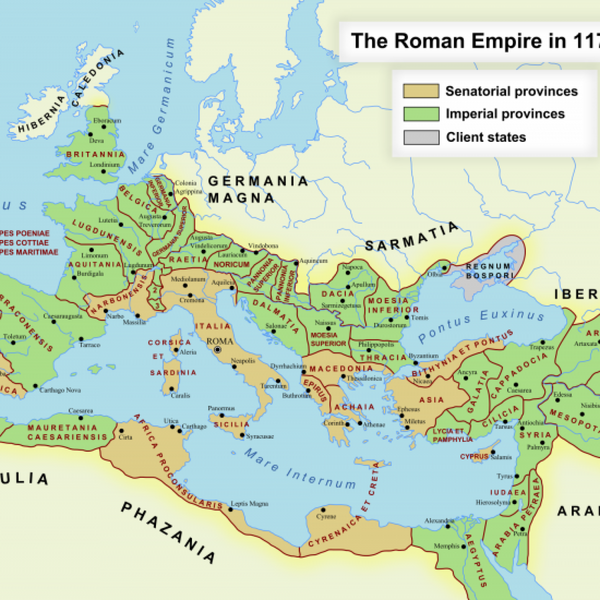
The Roman Empire, written by Joshua J. Mark and narrated by James Lloyd: https://www.worldhistory.org/Roman_Empire/
If you like our audio articles, please support us by becoming a member or donating to our non-profit company:
- www.ancient.eu/membership/ - www.ancient.eu/donate/ - www.patreon.com/ahe
Interested in the ANTIQVVS magazine? Find out more here → www.antiqvvs-magazine.com/
The music used in the sponsorship message is the intellectual copyright of Michael Levy, a prolific composer for the recreated lyres of antiquity, and used with the creator's permission. Michael Levy's music is available to stream at all the major digital music platforms. Find out more on:
https://open.spotify.com/artist/7Dx2vFEg8DmOJ5YCRm4A5v?si=emacIH9CRieFNGXRUyJ9
https://www.youtube.com/channel/UCJ1X6F7lGMEadnNETSzTv8A
The Roman Empire, at its height (c. 117 CE), was the most extensive political and social structure in western civilization. By 285 CE the empire had grown too vast to be ruled from the central government at Rome and so was divided by Emperor Diocletian (284-305 CE) into a Western and an Eastern Empire. The Roman Empire began when Augustus Caesar (27 BCE-14 CE) became the first emperor of Rome and ended, in the west, when the last Roman emperor, Romulus Augustulus, was deposed by the Germanic King Odoacer (476 CE). In the east, it continued as the Byzantine Empire until the death of Constantine XI and the fall of Constantinople to the Ottoman Turks in 1453 CE. The influence of the Roman Empire on western civilization was profound in its lasting contributions to virtually every aspect of western culture.
World History Encyclopedia
We are a non-profit organization publishing the world's most-read history encyclopedia. Our mission is to engage people with cultural heritage and to improve history education worldwide.
We are always looking for volunteers who wish to lend a voice to our articles. You can find out about how to apply as a narrator and we also have a list of most needed narrations.